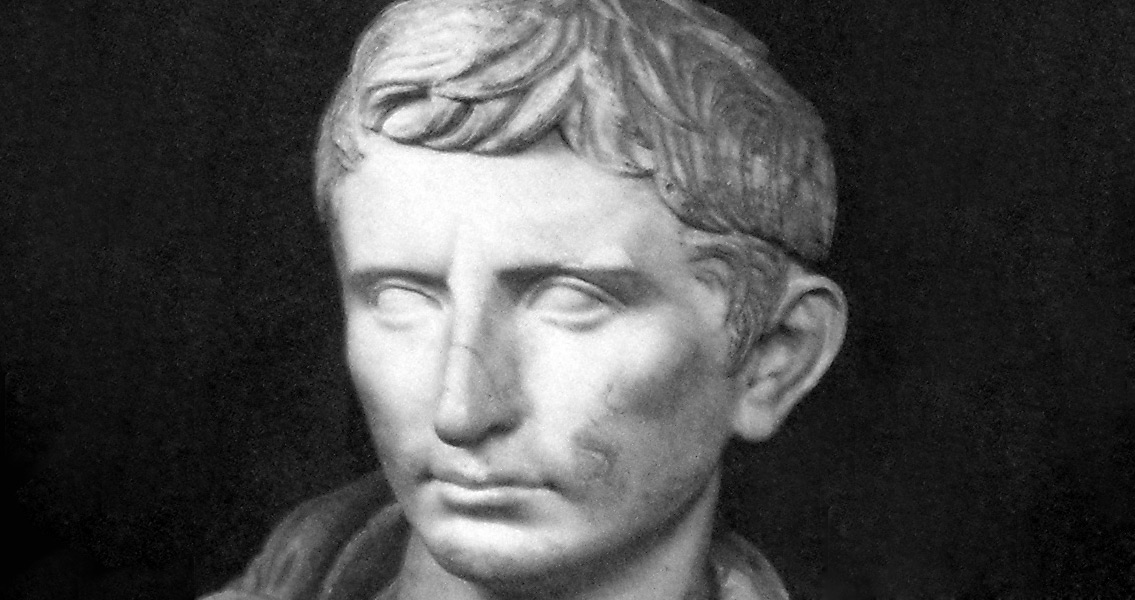<![CDATA[Augustus Caesar, the first emperor of Rome, was born on 23rd September, 63 BCE. Named Gaius Octavius at his birth in Velletri, Italy, he came from a relatively undistinguished patrician family, with his father serving as a senator and governor in the Roman Republic. Significantly, Augustus' mother Altai was the niece of Julius Caesar, and part of his childhood was spent being raised by his grandmother - Julius Caesar's sister. When he turned sixteen Augustus started to take on responsibilities bestowed upon him through his family connections, including embarking upon a military career. He went on to serve with Caesar's army in Hispania (modern day Spain), successfully crossing through enemy territory following his involvement in a shipwreck to reunite with Caesar's forces. The bravery and skill Augustus displayed during the Spanish campaign impressed his great uncle, to the extent that he was named as heir and successor in his will. In 44 BCE Augustus, then 18, was studying in ApollinIa (in what is now Albania) when he received news that Julius Caesar had been assassinated. Perhaps surprisingly, the teenager had no idea that he'd been appointed Caesar's successor until after the assassination. Quickly, he left Apollinia and headed for Rome. The young successor soon found himself embroiled in the complex, dangerous political system which had recently seen his great uncle killed. Julius Caesar had declared himself 'dictator for life' in 45 BCE, a move which undermined the long established republican system of government in Rome. The move was inevitably unpopular among members of the senate, and a plot involving up to sixty Roman noblemen was formed to have him killed. At his brutal assassination, fourteen senators surrounded him and attacked him with knives. Julius did have allies though, and these quickly rallied around Augustus to support his claim to rule and fulfill the dead leader's wishes. Augustus raised an army of some 3,000 men and entered into conflict against Mark Antony, a former trusted lieutenant of Julius Caesar who had maintained order in Rome following the Ides of March. The armies of the two leaders fought in Northern Italy, with Augustus emerging triumphant and Antony forced into retreat. Antony and Augustus eventually formed an uneasy alliance, and combined their forces to hunt down and eliminate Julius' assassins. In two major engagements in 42 BCE, the armies of Cassius and Brutus were decimated, and the two plotters behind Julius Caesar's death committed suicide rather than face capture. For a decade power was then shared between Augustus, Antony and Marcus Aemilus Lepidus in the Second Triumverate, an agreement which gave Augustus control of the West, Antony the East, and Lepidus Africa. Lepidus was ousted from the Triumverate in 37 BCE, leaving Antony and Augustus the main power figures in the Roman Empire. Antony's affair and political alliance with Cleopatra ultimately proved his undoing. A senatorial decree had forced Antony to marry Augustus' sister, Octavia Minor, but he continued his relationship with Cleopatra. In 32 BCE he sued for divorce, and Augustus declared war on Cleopatra in retaliation. The following year the navies of Antony and Cleopatra suffered a series of devastating defeats and the two lovers committed suicide, leaving Augustus the sole power figure in Rome. Augustus' 40 year reign, which most historians consider to have started in 32 BCE following Antony's death, was a productive one. The size of the Empire more than doubled, with conquests, deals and alliances seeing it expand to cover land from Britain to India. A system of censuses and taxation was implemented throughout this extensive empire, integrating the new territories under the centralised control of Rome. The city of Rome itself also changed dramatically, with a police force and fire brigade forming for the first time, and grand architectural projects being undertaken. Although never taking on the title of emperor himself, historians widely refer to Augustus as the first Roman emperor. During his long reign, he successfully pulled Rome out of the unrest of the aftermath of Julius Caesar's death, and led the transition from republic to empire.]]>
First Roman Emperor is Born
